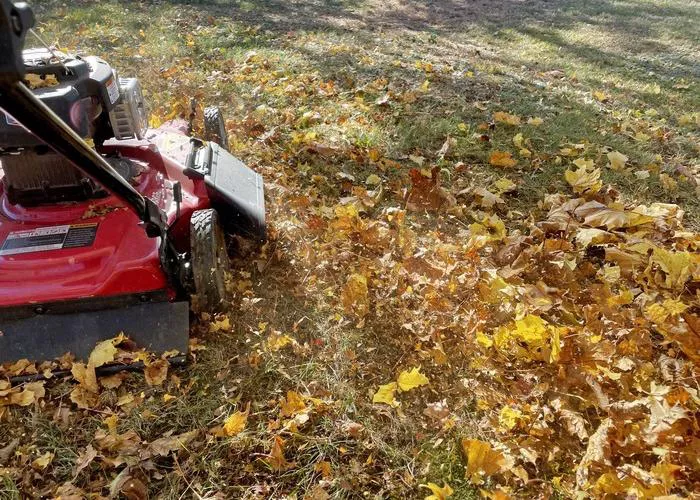A zero-turn mower is a type of lawn mower designed for superior maneuverability and efficiency, often used for residential and commercial landscaping. Unlike traditional riding mowers, zero-turn mowers have a turning radius of nearly zero, meaning they can pivot around their own axis. This unique feature allows for precise cutting, especially around obstacles such as trees, flower beds, and pathways.
How Zero-Turn Mowers Work
Zero-turn mowers operate using a dual hydrostatic transmission system controlled by two independent levers. Each rear wheel has its own hydraulic motor, allowing for individual speed control. By pushing one lever forward and pulling the other back, the mower can execute a zero-degree turn. This functionality enables fast, efficient, and highly precise mowing compared to conventional mowers.
Key Components of a Zero-Turn Mower
Engine: Typically, zero-turn mowers are equipped with powerful gasoline or diesel engines ranging from 15 to 30+ horsepower, providing the necessary force for quick, effective mowing.
Hydrostatic Transmission: The dual hydrostatic system allows each rear wheel to be controlled independently, providing the signature zero-turn capability.
Cutting Deck: Available in various sizes (usually between 42 to 72 inches), the deck houses the rotating blades responsible for cutting grass. Larger decks cover more area per pass, increasing efficiency.
Levers for Steering: Instead of a traditional steering wheel, these mowers use levers that control the movement and direction of the wheels.
Wheels: The rear wheels provide propulsion, while smaller front caster wheels pivot freely, enhancing maneuverability.
Frame and Seating: Designed for durability and comfort, most zero-turn mowers include ergonomic seating, shock-absorbing suspension, and durable steel frames.
Advantages of Zero-Turn Mowers
Zero-turn mowers offer multiple benefits that make them a popular choice among landscapers and homeowners with large yards. Some of the major advantages include:
Exceptional Maneuverability
Unlike conventional mowers, zero-turn models can rotate on the spot, making them ideal for complex landscapes with trees, gardens, and other obstacles.
Increased Mowing Speed
These mowers can operate at speeds between 5 to 10 mph, significantly faster than traditional riding mowers. This means users can mow large areas in a fraction of the time.
Improved Cutting Precision
With their ability to make sharp turns, zero-turn mowers ensure that no uncut grass patches are left behind. This eliminates the need for additional trimming.
Reduced Operator Fatigue
Many models come with ergonomic seating, vibration-dampening features, and simple control mechanisms, making them comfortable to operate for extended periods.
Versatility
Some zero-turn mowers come with attachments for mulching, bagging, snow plowing, and aerating, making them useful year-round.
Disadvantages of Zero-Turn Mowers
While zero-turn mowers provide numerous benefits, they also have some drawbacks:
Higher Cost
Zero-turn mowers are more expensive than traditional riding mowers due to their advanced hydrostatic transmission and maneuverability features.
Limited Performance on Slopes
These mowers can struggle on steep inclines due to their rear-wheel drive system. Losing traction on a slope can be hazardous.
Learning Curve
For those unfamiliar with zero-turn mowers, the steering mechanism can take some time to master.
Potential for Lawn Damage
If not handled properly, the sharp turning motion of a zero-turn mower can cause turf damage, especially in wet or delicate grass conditions.
Types of Zero-Turn Mowers
Zero-turn mowers come in different categories, each suited to specific applications:
Residential Zero-Turn Mowers
- Typically have smaller cutting decks (42-54 inches)
- Lower horsepower (15-24 HP)
- Designed for homeowners with medium to large lawns
Commercial Zero-Turn Mowers
- Larger cutting decks (54-72 inches)
- Higher horsepower (25-35+ HP)
- Heavy-duty frame for extended use
- Designed for professional landscapers and businesses
Stand-On Zero-Turn Mowers
- Compact design with a standing platform for the operator
- Offers enhanced visibility and control
- Preferred by professionals for quick maneuvering
Electric Zero-Turn Mowers
- Battery-powered models with zero emissions
- Lower noise levels compared to gas models
- Best for environmentally conscious users
Choosing the Right Zero-Turn Mower
When selecting a zero-turn mower, consider the following factors:
Lawn Size: Larger properties benefit from mowers with wider cutting decks (60+ inches).
Terrain: If mowing hilly terrain, consider a model with better traction or an alternative mower type.
Engine Power: Higher horsepower provides better efficiency for commercial use.
Comfort Features: Padded seats, vibration control, and suspension systems can enhance user experience.
Fuel Type: Gasoline, diesel, and electric models have different performance characteristics.
Maintenance and Safety Tips
Maintenance:
Regular Blade Sharpening: Dull blades can result in uneven cuts and lawn damage.
Oil and Filter Changes: Follow the manufacturer’s recommendations for engine longevity.
Check Tire Pressure: Proper inflation ensures smooth operation and traction.
Clean the Deck: Grass buildup can impact performance.
Inspect the Belts and Cables: Ensure there are no worn-out or loose components.
Safety Guidelines:
Wear Protective Gear: Safety glasses, gloves, and hearing protection are recommended.
Avoid Steep Slopes: Zero-turn mowers are not ideal for mowing on steep inclines.
Be Aware of Obstacles: Rocks, toys, and debris should be cleared from the mowing area beforehand.
Turn Slowly: Making sharp turns too quickly can damage the turf or lead to tipping.
Conclusion
Zero-turn mowers offer unmatched speed, precision, and efficiency, making them an excellent choice for homeowners and professionals. Despite their higher cost and learning curve, their maneuverability and cutting capabilities justify the investment. Whether you need a residential, commercial, or electric model, choosing the right zero-turn mower can significantly improve your lawn maintenance routine.

